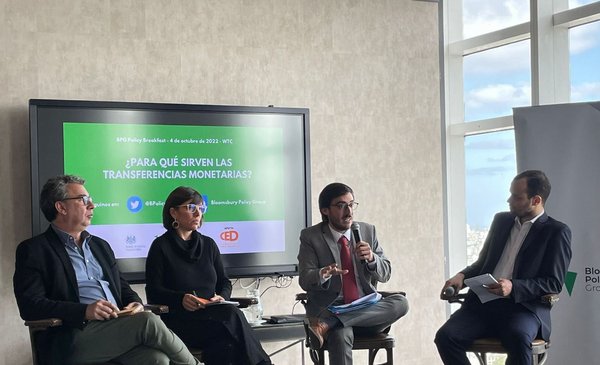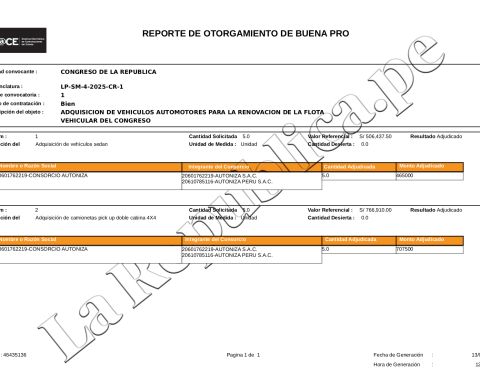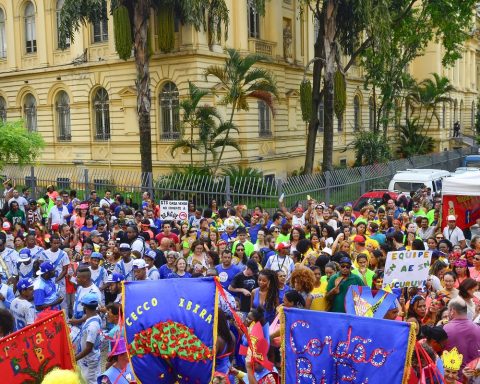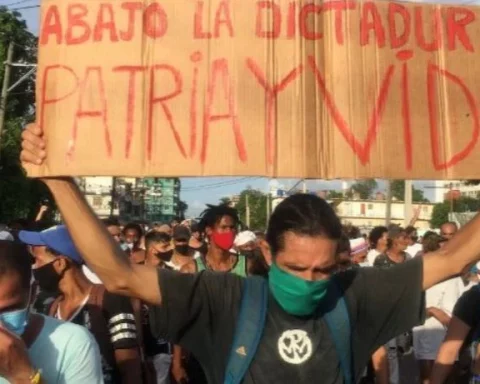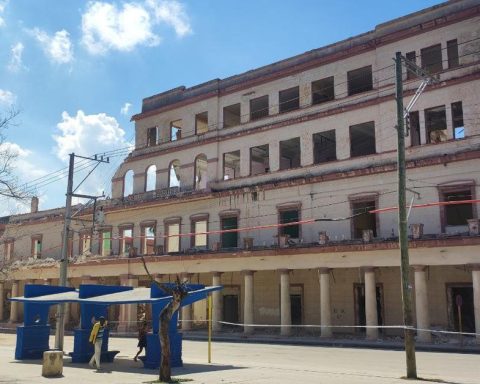Cash transfer policies as a tool to reduce poverty and improve social development, was the central theme of the conference organized this Tuesday by the Bloomsbury Policy Group at the World Trade Center. The Executive Branch is analyzing making some adjustments to the current model to improve the efficiency in the transfer of these State resources.
Towards a single system?
The National Director of Data Transfers and Analysis of the Ministry of Social Development (Mides), Antonio Manzi, announced that the possibility of implement a single transfer system In uruguay.
“It’s doing something by bringing together the best practices from all the programs. We are thinking, for example, of an unconditional basis, another basis subject to the fulfillment of conditions and a third based on incentives. For example, in Chile they have a program where if you get a formal job, and you hold it for three months, they give you a bonus. It’s thinking about it,” she stated.
Manzi commented that international evidence says that cash transfers “improve” household income, have “some impact” on “reducing” and “alleviating” poverty, and “increase” household consumption.
In relation to labor aspects, the hierarch pointed out that the evidence is mixed: “Some say that people do not stop looking for work and others that it can generate “a little more” informality. Regarding transfers that require some type of consideration, such as attendance at an educational center, he said that “there are studies that show positive effects” when this is controlled.
Manzi insisted that the context that generates the evidence is changing, and that makes it necessary to rethink the design and the operational part of the programs when necessary.
As an example, he mentioned that the control of The income ceiling that existed until last January for a household to have access to a family allowance “was generating a trend towards “informality” and “underreporting” among people, for fear of losing that benefit. Since the beginning of this year, this income control has been eliminated.
He also mentioned another case in which the procedure for accessing a benefit required the mothers to provide proof of custody of the child. That made the person have to go to court and in many cases people did not complete the process even when they met all the requirements to access the benefit, he said. Manzi explained that —together with the BPS— a pilot plan was started in which it is automatically assumed that the mother has custody.
In another part of his presentation, the chief recalled that work is being done on the implementation of a Mides-BPS one-stop shop, that facilitates access to the two main transfers that are the family allowance-Equity Plan and the Uruguay Social card.
Coverage, sufficiency and sustainability
The head of the Uruguayan Office of the United Nations Population Fund, Fernando Filgueira, explained that one of the ways to address what monetary transfers are for is through the experimental design applied to a certain population. This allows an approximation to try to identify “the net causal effect of an intervention” on the employment rate or food consumption, for example.
According to Filgueira, there is also another way of evaluating the usefulness of monetary transfers that is “less rigorous” but “more intuitive”, and that is to look at societies with different transfer models, and then see what the degrees of dependency, autonomy , and poverty.
“Countries that have broad and robust non-targeted universal systems generally have low levels of dependency, high levels of autonomy and low levels of poverty. And countries that rely heavily on targeted mechanisms tend to generate much more situations of dependency and are more unequal”, she pointed out.
On the other hand, he pointed out that the parameters that are commonly applied to evaluate the quality of the pension system, such as coverage, sufficiency and sustainability, could be applied to cash transfer systems.
“Several of the measures that have been taken in Uruguay, such as the single window, such as the affidavit, go in the right direction, but they do not solve the underlying problem. We continue to have situations of exclusion when we do not want them, we continue to have high costs for access, and sufficiency and sustainability are those of a marginal targeted system and not those of a basic provision pillar. (…) I would never deny myself targeted instruments, but the sustainability of a more universal model must be discussed”, Filgueira considered.
Bloomsbury Policy Group
Conditional transfers
Meanwhile, the director of the Vice President for Research and Innovation of the Catholic University, Cecilia Rossel, focused on the conditionality component that have many monetary transfers, something widespread in Latin America, he said.
“We know very little, we do not know if it generates a specific effect on educational assistance, on medical check-ups. We assume that the design works, but there is no evidence, ”he pointed out by way of example.
“If we assume that the transfer does not change people’s lives, why do we believe that an amount of money will change behavior as complex as going to high school every day? There are too many steps in the middle between money and the child staying in high school”, said Rossel.
In addition, he considered that the conditionality component of the policies “produces things that are not good” outside the beneficiaries, such as “stigma” and “a feeling of rejection” in public opinion.
The expert considered it “healthy” to work on the idea of a single transfer system that “minimizes” administrative costs and ensures a “greater impact.”
